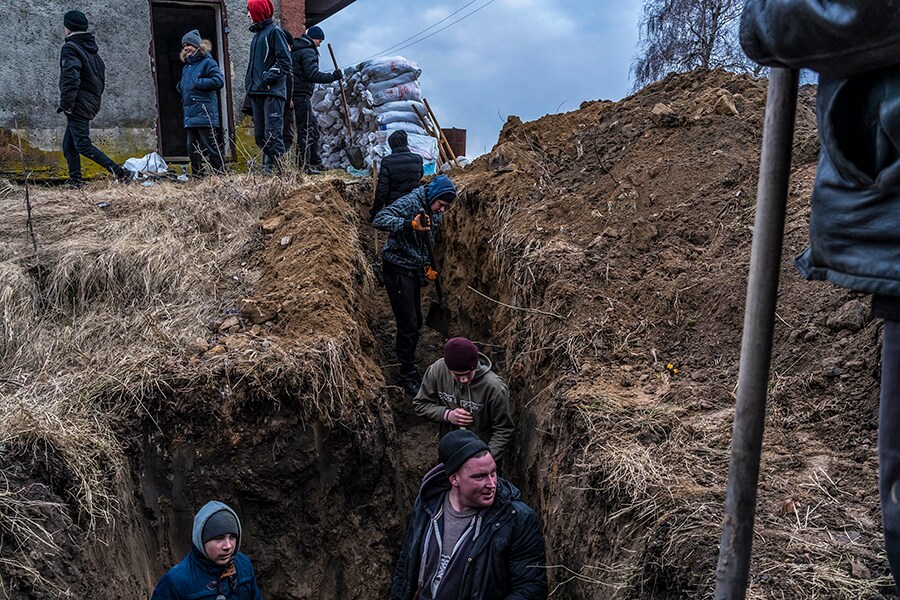
Ukraine agrees to talks with Russia but fighting still rages
Even as Ukraine's president, Volodymyr Zelenskyy, agreed to send a delegation to meet with Russian officials near the border with Belarus, he made it clear that he expected little to come of it
 Locals dig a bunker and erect a checkpoint in preparation to fight Russian troops in the village of Hushchyntsi, Ukraine, Feb. 27, 2022. (Brendan Hoffman/The New York Times)
Locals dig a bunker and erect a checkpoint in preparation to fight Russian troops in the village of Hushchyntsi, Ukraine, Feb. 27, 2022. (Brendan Hoffman/The New York Times)
KYIV, Ukraine — As Russian forces bore down on Ukraine’s capital and officials put the toll of civilian dead at more than 350 since the invasion began, the two countries agreed Sunday to sit down for talks “without preconditions,” but hopes were not high for a peaceful resolution of the conflict.
Even as Ukraine’s president, Volodymyr Zelenskyy, agreed to send a delegation to meet with Russian officials near the border with Belarus, he made it clear that he expected little to come of it. He declined to agree to any conditions or concessions before the talks, making it clear that he would not grant Russia the upper hand after its unprovoked attacks.
“I do not really believe in the outcome of this meeting,” he said, “but let them try to make sure that no citizen of Ukraine has any doubt that I, as a president, have not tried to stop the war.”
As world leaders moved to isolate Moscow and inflict heavy economic pain over the invasion, Russia showed little apparent interest in de-escalating.
President Vladimir Putin, denouncing the West’s “aggressive” actions, said he had told his defense minister and his top military commander to place Russia’s nuclear forces on alert. Not only are Western countries imposing “illegitimate sanctions” against Russia, Putin said, “but senior officials of leading NATO countries are allowing themselves to make aggressive statements directed at our country.”
©2019 New York Times News Service







